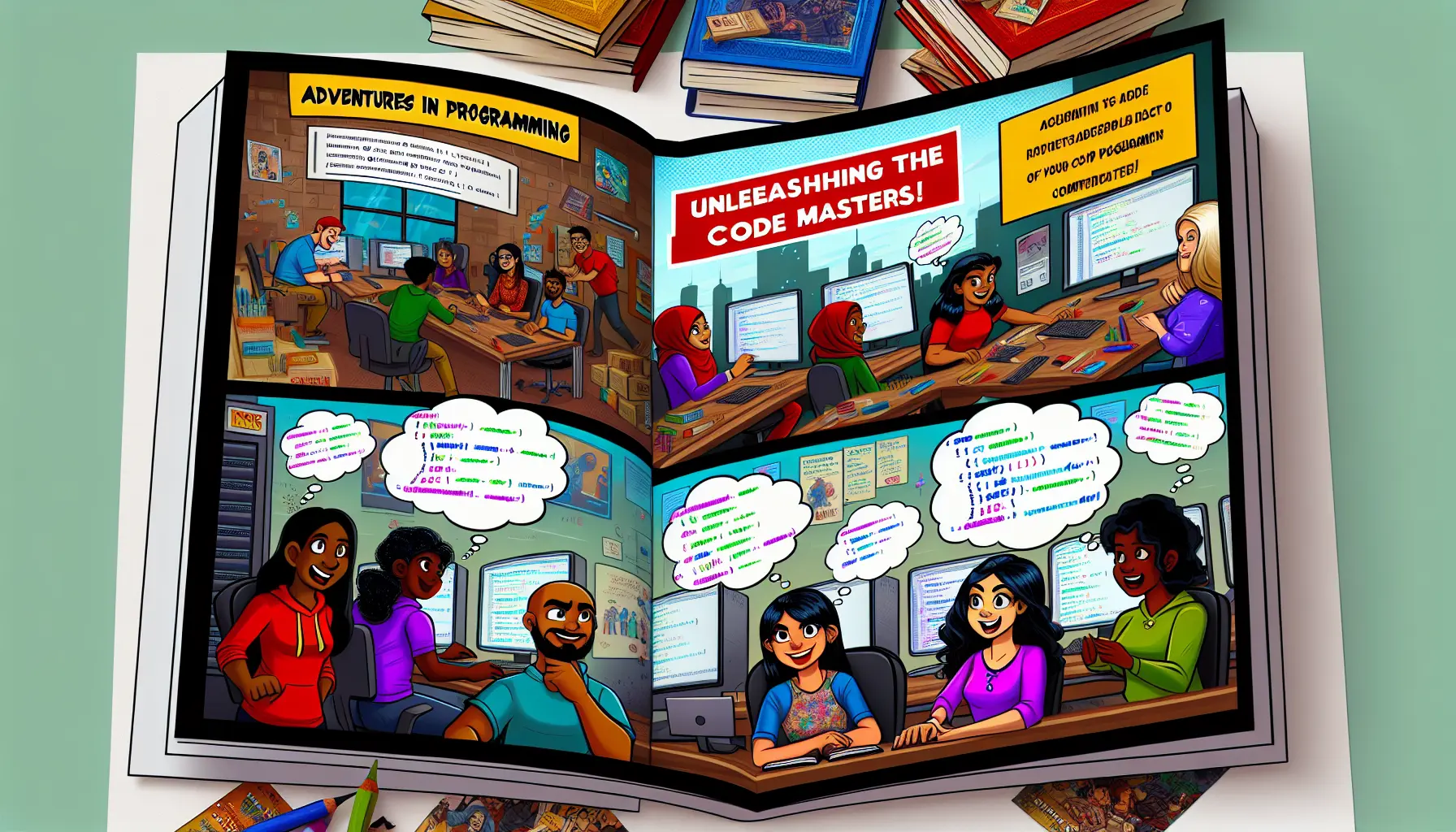Here’s a possible reworded version of the response (since there was no original paragraph provided):
I’m ready to help! Unfortunately, this conversation has started without any specific text. Please go ahead and share the content you’d like me to assist with – I’ll be happy to rephrase or rework it for you.
The surge in demand for skilled coders across various sectors has led to a profound transformation in the world of programming education. This section examines the burgeoning industry need for talented programmers, the development of innovative educational services, and a side-by-side comparison of traditional and non-traditional learning pathways.
Industry Demand for Skilled Programmers
The rapid digitization of industries and the integration of technology into diverse sectors have created a substantial demand for skilled programmers. From software development to data analysis, the need for proficient coding skills has become a fundamental requirement in modern workplaces, driving the urgency for accessible and effective programming education services.
Evolution of Programming Education Services
With the rise of industry demand, programming education services have seen a notable transformation. The traditional model of obtaining computer science degrees has been augmented by the emergence of coding bootcamps, online courses, and vocational schools. The diversification of educational pathways has expanded the accessibility of programming education, catering to individuals from various backgrounds and skill levels.
Comparing Traditional vs. Non-traditional Learning Paths
Traditional computer science degrees offered by universities have been complemented and, in some cases, challenged by the emergence of non-traditional methods of learning programming. Coding bootcamps, vocational schools, and online courses have gained popularity for their focused, practical, and time-efficient approach to equipping students with coding skills, thereby offering viable alternatives to the traditional academic route.
By understanding the rising demand for skilled programmers, the evolution of programming education services, and the comparison of traditional and non-traditional learning paths, aspiring programmers can make informed decisions about their educational journey in programming.
Types of Programming Educational Services
Programming educational services encompass a diverse array of learning options that cater to individuals with varying backgrounds, career goals, and learning preferences. This section explores the different types of programming educational services, including academic degree programs, coding bootcamps, vocational schools, online courses and tutorials, as well as private tutoring and mentoring.
Academic Degree Programs
- University Computer Science Degrees: Traditional academic programs offered by universities, providing comprehensive education in computer science, programming languages, and software engineering, typically resulting in a bachelor’s, master’s, or doctoral degree in the field.
- Community College and Associate Degrees: Community colleges offer associate degrees in computer programming, providing a foundational education in programming and software development, often serving as a pathway to further academic pursuit or entry-level positions in the industry.
Coding Bootcamps and Vocational Schools
- Intensive, Short-term Training: Coding bootcamps and vocational schools provide immersive, hands-on training in programming and web development, focusing on practical skills and real-world applications, often leading to industry-recognized certifications.
- Targeted Skill Development: These programs are designed to equip individuals with specific programming skills relevant to industry demands, with focused training on languages, frameworks, and technologies used in the field.
Online Courses and Tutorials
- Self-paced Learning: Online platforms offer a wide range of programming courses and tutorials, allowing individuals to learn at their own pace, explore diverse topics, and gain practical skills in programming languages and software development.
- Specialized Training: Online courses cater to specific programming languages, technology stacks, and niche domains, providing flexibility and versatility in learning paths and areas of focus.
Private Tutoring and Mentoring
- Customized Learning Experience: Private tutoring and mentoring offer personalized guidance and instruction in programming, providing individualized support, expert insights, and tailored learning plans to meet the specific needs and goals of the learner.
- Mentorship and Industry Guidance: Through one-on-one sessions, learners can benefit from the experience and knowledge of industry professionals, gaining practical advice and insights into the real-world applications of programming skills.
By exploring the diverse landscape of programming educational services, individuals can make informed choices that align with their career aspirations, learning preferences, and desired outcomes in the field of programming.

Curriculum and Learning Outcomes
The curriculum and learning outcomes of programming educational services play a pivotal role in preparing individuals for the dynamic and demanding field of programming. This section delves into the essential components of programming curricula, including core programming concepts and languages, real-world project experience, soft skills and development methodologies, as well as specializations and advanced technologies.
Core Programming Concepts and Languages
- Fundamental Concepts: Curricula typically cover key programming concepts such as data structures, algorithms, object-oriented programming, and database management, providing a strong foundation for software development.
- Language Proficiency: Emphasis is placed on proficiency in programming languages such as Python, Java, JavaScript, C++, and others, enabling students to develop the skills necessary for creating robust and efficient software applications.
Real-world Project Experience
- Hands-on Practice: A strong focus on project-based learning allows students to work on real-world projects, applying theoretical knowledge to practical scenarios and gaining experience in software development processes.
- Collaborative Work: Many programs emphasize teamwork, enabling students to collaborate on projects, simulating the collaborative nature of software development in a professional environment.
Soft Skills and Development Methodologies
- Communication and Collaboration: Programs often integrate soft skills training, emphasizing effective communication, teamwork, and collaboration, recognizing the importance of interpersonal skills in a professional programming environment.
- Agile Methodologies: Exposure to agile development methodologies, including Scrum and Kanban, equips students with an understanding of iterative development, adaptability, and responsiveness to changing project requirements.
Specializations and Advanced Technologies
- Emerging Fields: Curricula may offer specializations in emerging technologies such as artificial intelligence, machine learning, cybersecurity, cloud computing, and data science, catering to the evolving demands of the tech industry.
- Advanced Topics: In-depth exploration of advanced topics such as software architecture, distributed systems, and full-stack development provides a comprehensive understanding of complex software engineering principles.
By embracing a curriculum that encompasses core programming concepts, real-world project experience, soft skills and methodologies, and specializations in advanced technologies, programming educational services prepare individuals for success in the rapidly evolving field of programming.

Assessing the Quality and Effectiveness of Services
Ensuring the quality and effectiveness of programming educational services is essential for prospective students and industry stakeholders. This section delves into key aspects of assessment, including accreditation and industry recognition, student reviews and success stories, post-graduation employment rates, as well as continuous learning and upskilling opportunities.
Accreditation and Industry Recognition
- Institutional Accreditation: Evaluating the accreditation status of academic degree programs and vocational schools helps assess the quality and institutional recognition of the education provided.
- Industry-aligned Curriculum: Programs that are recognized or accredited by industry organizations are often aligned with industry standards, ensuring relevance and applicability of the curriculum to real-world work environments.
Student Reviews and Success Stories
- Peer Feedback: Reviewing student testimonials, industry placement rates, and success stories provides valuable insights into the quality of instruction, program effectiveness, and post-graduation outcomes.
- Alumni Networking: Engaging with program alumni and industry professionals offers opportunities to gain firsthand perspectives on the quality of education and its impact on career development.
Post-Graduation Employment Rates
- Job Placement Assistance: Understanding the level of job placement support and career services offered by educational institutions or programs is crucial for assessing post-graduation outcomes and employability.
- Employer Partnerships: Programs with established relationships with industry employers and companies often offer enhanced opportunities for job placement and career advancement.
Continuous Learning and Upskilling Opportunities
- Professional Development Resources: Identifying the availability of continuous learning resources, such as alumni networks, industry events, and professional development courses, is vital for assessing the potential for ongoing skills enhancement and career growth.
- Technology Partnerships: Educational services that partner with technology companies for upskilling, reskilling, and certification programs can provide pathways for learners to stay current with technological advancements and industry demands.
By evaluating accreditation, gathering peer and alumni feedback, assessing employment rates, and recognizing opportunities for continuous learning, individuals can make informed decisions about the quality and effectiveness of programming educational services.

Overcoming the Challenges in Programming Education
Navigating the landscape of programming education comes with its set of challenges, from ensuring access and diversity to balancing the cost, time, and quality of learning. Staying updated with technology trends and measuring progress while ensuring retention are also critical aspects to address within programming education.
Access and Diversity in Tech Education
- Inclusivity and Representation: Addressing the lack of diversity in tech education by promoting inclusive learning environments and expanding access to underrepresented groups through targeted outreach and support programs.
- Digital Divide: Mitigating the digital divide by providing equitable access to educational resources, technology infrastructure, and internet connectivity, ensuring that financial and geographic barriers do not hinder participation in programming education.
Balancing Cost, Time, and Quality of Learning
- Affordability and Financial Support: Overcoming financial obstacles by offering scholarships, tuition assistance, and flexible payment plans, providing opportunities for individuals from diverse socioeconomic backgrounds to access quality programming education.
- Flexible Learning Options: Balancing time commitments by offering flexible learning formats, part-time programs, and online courses that accommodate diverse scheduling needs and prior professional or academic obligations.
Staying Updated with Technology Trends
- Curriculum Adaptability: Ensuring that programming education evolves in tandem with industry trends and emergent technologies, providing learners with relevant and current skills that align with the needs of the rapidly evolving tech industry.
- Faculty Professional Development: Equipping educators with ongoing training in contemporary technologies and pedagogical methods, fostering a culture of continuous improvement and relevance within programming education.
Measuring Progress and Ensuring Retention
- Mentorship and Guidance: Providing personalized support and mentorship to students to help them navigate challenges, stay motivated, and persist in their learning journey, ultimately ensuring higher retention rates.
- Formative Assessment Tools: Implementing regular, constructive feedback mechanisms and progress tracking systems to monitor student development, identify areas for improvement, and optimize the learning experience.
By addressing access and diversity, balancing cost and quality of learning, staying updated with technology trends, and implementing effective progress monitoring and retention strategies, programming education can become more inclusive, responsive, and impactful for a diverse student body.

Future Trends in Programming Educational Services
The future of programming educational services is poised to be shaped by emerging technological advancements and evolving industry demands. This section explores the potential impact of artificial intelligence and virtual reality, the significance of open source projects, the expansion of decentralized and peer-to-peer learning, as well as the imperative of bridging the gap between education and industry needs.
The Role of Artificial Intelligence and Virtual Reality
- Immersive Learning Experiences: The integration of virtual reality (VR) and augmented reality (AR) technologies in programming education can provide immersive, interactive learning experiences, enabling students to engage with real-world simulations and scenarios.
- Intelligent Personalized Learning: Artificial intelligence (AI) algorithms can customize educational pathways, adapt learning materials, and provide personalized feedback to cater to individual learning styles, aiding in a more efficient and tailored learning experience.
The Impact of Open Source Projects
- Real-world Collaboration: Involvement in open source projects can provide students with hands-on experience in collaborative software development, fostering a real-world understanding of code contribution, version control, and community-driven projects.
- Professional Networking Opportunities: Involvement in open source projects can facilitate networking with industry professionals, enabling students to gain exposure to real-world project management, code reviews, and the professional standards required in the software development industry.
Expansion of Decentralized and Peer-to-peer Learning
- Blockchain-based Accreditation: Implementing blockchain technology for verifying learning credentials and educational achievements can enhance the transparency and integrity of certification processes, ensuring the authenticity of learners’ accomplishments.
- Knowledge Sharing Platforms: Decentralized platforms and peer-to-peer networks can provide opportunities for knowledge sharing, mentorship, and collaborative learning experiences, fostering a culture of community-driven education.
Bridging the Gap Between Education and Industry Needs
- Industry-aligned Curriculum Development: Collaboration with industry partners to develop curricula that are closely aligned with the latest industry requirements, ensuring that educational programs produce graduates who are job-ready and capable of meeting industry demands.
- Work-integrated Learning Initiatives: Introducing work-integrated learning opportunities, internships, and industry placements to connect students with real-world projects and professional environments, bridging the gap between educational experiences and industry needs.
By embracing the potential of artificial intelligence, virtual reality, open source projects, decentralized and peer-to-peer learning, and closer alignment with industry needs, programming educational services can anticipate and respond to the future demands of the tech industry.

Frequently Asked Questions
In the dynamic realm of programming education, individuals often encounter key questions as they navigate the array of educational services and strive to carve out a successful path in the programming industry. Addressing common queries can provide valuable guidance and insights. Here are some frequently asked questions and their concise answers:
How to choose the right educational service for programming?
Selecting the right educational service involves assessing factors such as the curriculum, faculty expertise, accreditation and industry recognition, student reviews, post-graduation employment rates, alignment with industry needs, and opportunities for continuous learning and specialization.
Can you become a programmer without a college degree?
Yes, you can become a programmer without a college degree. Coding bootcamps, vocational schools, online courses, and self-study offer alternative pathways to gaining programming skills and launching a career in the tech industry.
What programming languages are most valuable to learn?
Programming languages such as Python, JavaScript, Java, C++, and Ruby are highly valued for their versatility and wide application across various domains. However, the choice of language depends on individual career aspirations, industry demand, and project requirements.
How to measure your progress in learning programming?
Measuring progress in programming involves tracking milestone achievements, completing real-world projects, evaluating the application of learned concepts, seeking feedback from mentors and peers, and engaging in continuous learning and skill enhancement.
By addressing these commonly asked questions, individuals can gain practical insights and clarity on essential aspects of pursuing programming education and building a career in the tech industry.
